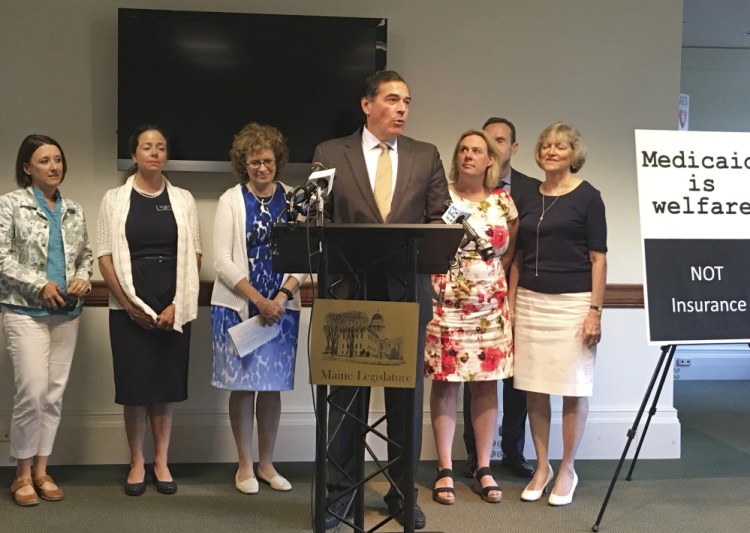The Republican war on Medicaid came to Maine this week, as local opponents led by former state party chairman Rick Bennett tried to weaken the proposed wording of a referendum question that would expand eligibility to the health care program here with mostly federal funds.
For now, the fight is over a single word: Whether Medicaid (known here as MaineCare) should be called “insurance” on the ballot, or as the opponents insist “welfare.”
Words matter. As Mark Twain said the difference between the right word and the wrong one is like the difference between “lightning and a lightning-bug.” But don’t mistake this as a fight over linguistic precision.
Earlier this year, the majority of Republicans in Congress, including Maine Rep. Bruce Poliquin, tried to take advantage of dissatisfaction with aspects of the Affordable Care Act to pass a bill that would starve Medicaid of federal support, costing tens of millions of Americans their health coverage. Fortunately, their effort stopped short in the Senate, where three Republicans, including Maine’s Sen. Susan Collins, were able to kill it.
In Maine, the battle is now over whether Medicaid eligibility should be extended to people who earn slightly more then the federal poverty line, which is currently $24,600 a year for a family of four. Led by Gov. LePage, most Republicans (with notable exceptions including state Sens. Roger Katz of Augusta, and Thomas Saviello of Wilton) have prevented the program’s expansion under the ACA, claiming that it would cost too much, even if it was mostly funded by the federal government.
That’s still their objection, but that’s not the ground on which they are currently fighting. Now they are fighting over a word.
But it’s a loaded word. Ever since Ronald Reagan campaigned on stories of a “Welfare Queen,” who used multiple identities to defraud the system and live in luxury, political operatives have been reinforcing negative connotations attached to what seems on its face to be a neutral term. Polling tells them that the word “welfare” conjures association with laziness, greed and theft, and getting the word on the ballot would help defeat a question.
It’s easy to see why they would want that, but it is not an accurate description of Medicaid. Coverage under the program works just like insurance. Payments go to private doctors, pharmacies, nursing homes and hospitals, not to members of the plan themselves. The federal government refers to its expanded Medicaid eligibility for minors as the “Children’s Health Insurance Program.” The Health Insurance Association of America refers to Medicaid as “a government insurance program.”
Rather than fight over the propriety of the use of the word “insurance,” opponents of the referendum should explain why they think Maine would be better off if fewer people had coverage for their health costs. They should also state whether they agree with Poliquin and his Republican colleagues in Congress, who wanted to cut benefits to those who are already eligible.
This issue is too important for proxy fights: Rather than argue over language, the referendum’s opponents should come out and say what they mean.
Send questions/comments to the editors.


